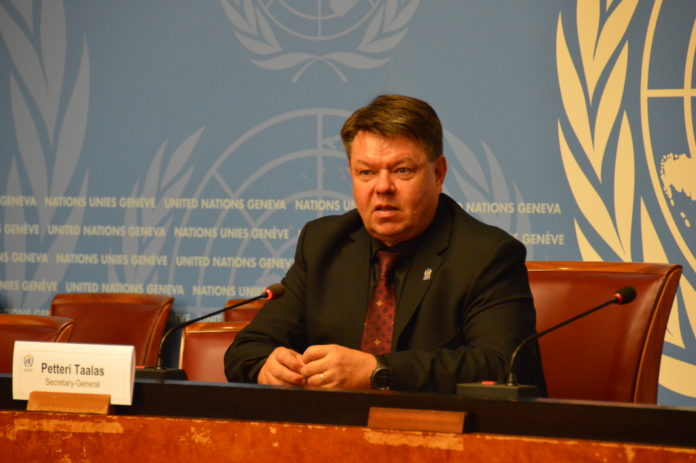The World Meteorological Congress will take place from June 3 to 14 to agree on a strategy and tools to help countries improve resilience to meteorological, hydrological, climatological and environmental shocks, strengthen scientific observations and forecasts, and fill capacity gaps. Held every four years, Congress defines the strategic, political and normative orientations, adopts the budget and elects the office-holders of the 193-member World Meteorological Organization (WMO).
This year, it will be debating a far-reaching reform of the WMO's governance structures, designed to counter the main risks and meet the challenges of a rapidly changing world.
Also on the agenda: strengthening the observation network on which all forecasts are based; improving weather and climate services in the context of climate change and the increasing number and intensity of extreme weather events; supporting hydrological services for sustainable water management; the integrated scientific approach to the Earth system; support for capacity development; partnerships with the private sector and data policy.
The following activities will take place during the Congress: a specific dialogue on oceans, a session on expanding partnerships for development, a parallel assembly on hydrology, a dialogue between the public and private sectors, and the Meteorological Technology World Expo, where the latest forecasting, measurement and analysis techniques in the fields of climatology, meteorology and hydrometeorology will be presented.
Congress is expected to approve a new strategic plan to realize its overall vision: "By 2030, a world in which all nations, especially the most vulnerable, better master the socio-economic consequences of extreme events related to weather, water, climate and the environment, and have the capacity to foster sustainable development through the best possible services, on land, at sea and in the air." "WMO experts and national meteorological and hydrological services have never been in greater demand. The socio-economic impact of meteorological, climatological and hydrological hazards is becoming increasingly severe due to environmental degradation, urbanization and, above all, climate change," said WMO Secretary-General Petteri Taalas.
"Climate change is altering rainfall patterns, increasing water stress and food insecurity. It is affecting the intensity and trajectory of tropical storms. Sea-level rise is accelerating and could reach a much higher rate than predicted by the end of the century", stressed Mr Taalas.
According to the latest WMO survey, only 27% of WMO Members have advanced hydrometeorological services, while 26% provide only basic or inadequate services. Some 94% of WMO Members have a disaster prevention system in place, but only 57% provide impact-oriented forecasts.
WMO ensures that all countries have access to high-quality weather and climate forecasts from regionally and globally designated specialist centers, and to multi-hazard early warning services. WMO is also developing integrated services for urban areas and the health sector, addressing stress factors such as poor air quality and heat waves.
Congress is expected to approve the WMO Strategic Plan for the period 2020-2030.


